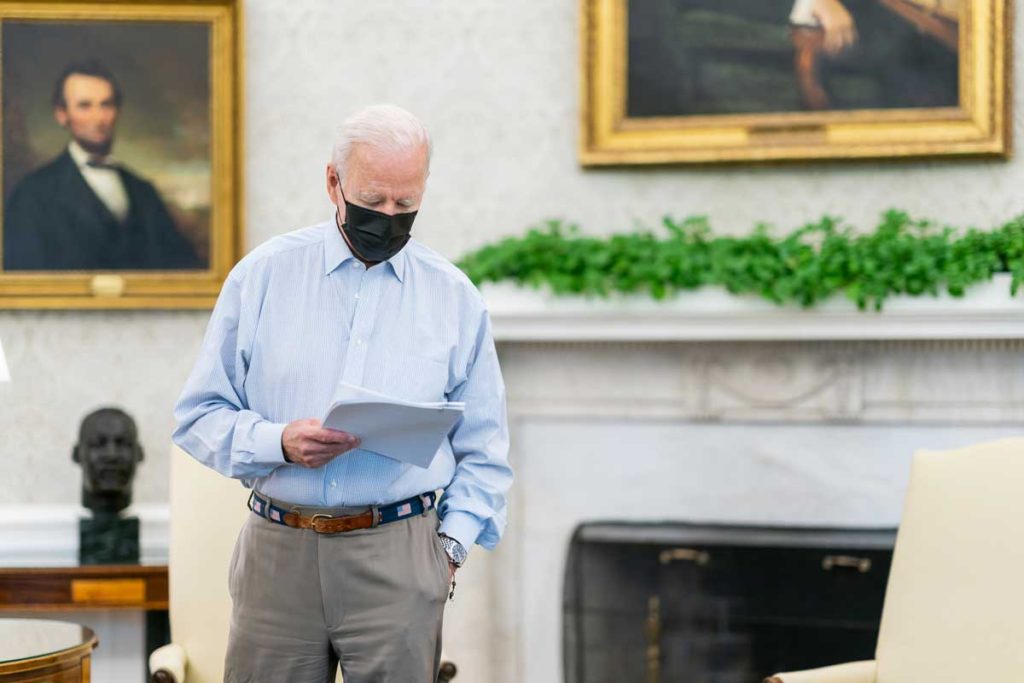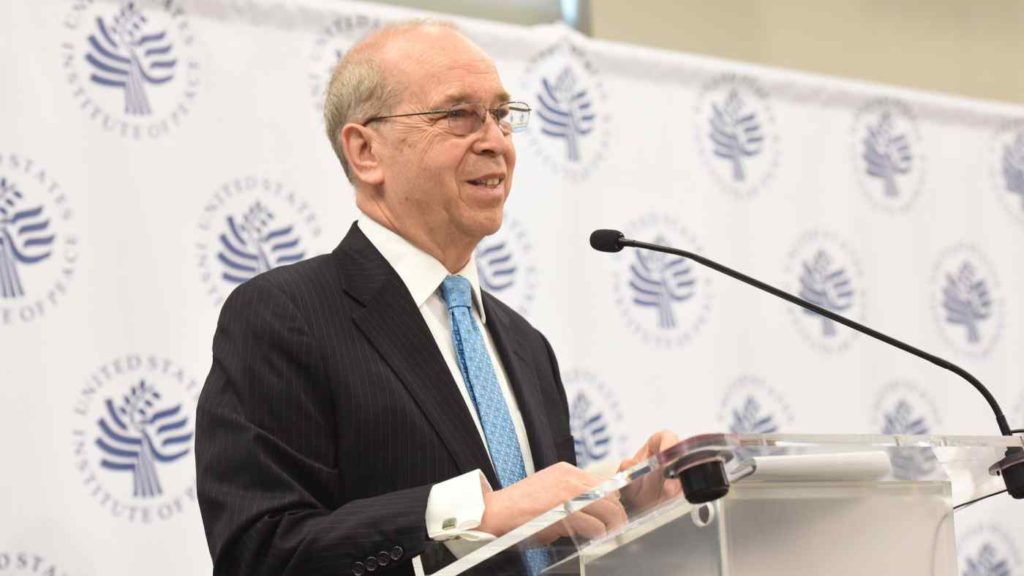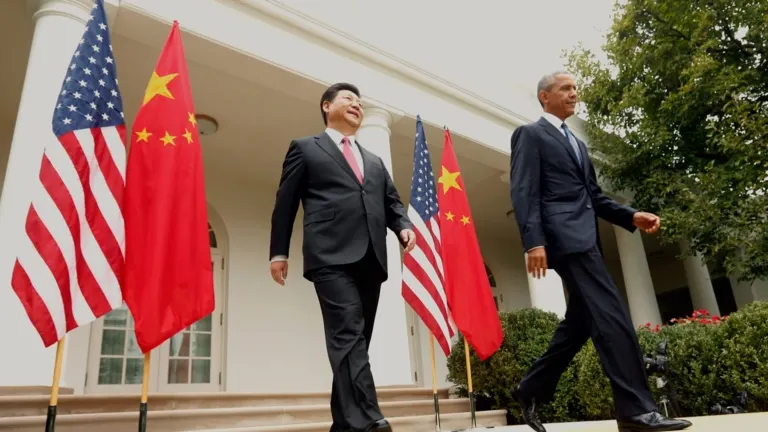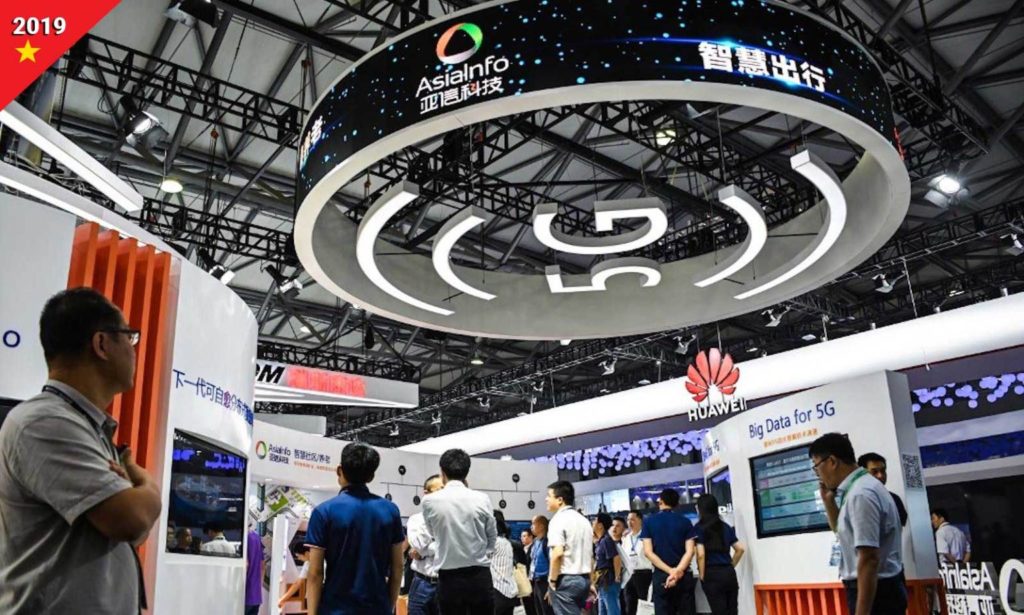华为称不会放弃手机业务和海外市场
8/18/2021
中国科技巨头华为技术有限公司轮值董事长郭平表示,华为生存没有问题,美国对华为卡脖子涉及到的是成本问题、工艺问题和时间问题,要靠有效的投入来解决。他同时也说,华为不会放弃手机业务,也绝对不会放弃海外市场。
根据证券时报网报道,华为心声社区昨天以一篇题为《在历史大转折中遇见更好的自己》的文章刊登了郭平与新员工座谈纪要。 郭平表示,华为生存没有问题。美国对华为卡脖子的是成本问题、工艺问题和时间问题。过去两年华为做得效果不错,管理层有信心,也有这样的支付能力。“不能打倒我的都会让我更坚强”,郭平说,“每一个员工勤恳地、卓有成效地工作,做出成绩,华为公司就会越来越好,美国就打不死我们。”
郭平还表示,针对整个产业链卡脖子问题,华为不惜打出自己的最后一发子弹,一定能够建立起这个产业链。相信将来,华为不仅能设计得出,能造得出,还能够持续领先。
郭平说,手机业务受到影响,但华为在全屋智能、音频、显示设备、运动健康等各个方面都获得了大的发展。“暂时关住这扇窗,同时也开了很多门。我相信我们消费者业务能活下来,我们不会放弃手机业务。”他强调,华为的原则是:华为不造车,帮车厂造好车。华为不会去开发房地产,但全屋智能,把家里所有东西万物互联,通过鸿蒙系统全部连接起来。
郭平也说,华为绝对不会变成一个只有中国市场的公司,绝对不会放弃海外市场。华为在海外能够生存,而且相信随着供应的改善,在海外还会有发展。至于个别国家的政策,并不影响整个华为在全世界的整体存在。公司也在努力跟有关的利益相关方进行沟通,加强与所在国的信任。
谈到5G,郭平说,5G在行业的应用,还处于一个发展的早期,5G的标准也还处在不断完善的过程中,把5G的潜能释放出来是华为的工作重点之一。至于6G,郭平表示,他个人预想,6G有可能是区域性的网络,用于工业应用,它有更低的时延、更高的传输速度,但可能没法建成一张全球性的漫游网络。把5G与人工智能、云、企业应用场景结合起来是当务之急。
华为本月6日在官网公布了今年上半年经营业绩。数据显示,华为在今年上半年实现销售收入3204亿元人民币(下同,669.3亿新元),同比下滑29.4%,净利润率9.8%。和去年9.2%的数据相比,净利润率有微弱提高。
在华为三大主营业务中,除了企业业务外,其他两项业务营收均有不同程度下滑,而手机等为代表的消费者业务营收下降幅度超过40%。
Biden’s China Doctrine?
By Raihan Ronodipuro
7/19/2021

The current issue of “The Economist,” published recently, features a cover story on Biden’s China Doctrine. According to the report, “Bidenism” has converted the rhetoric of the “Trumpism” era into a policy prescription of Sino-US clashes (particularly institutional confrontation), with only one winner.
Biden and his team think that China is not interested in coexisting with the US, and they anticipate an early domination. Because of this, the goal of US policy toward China is to undermine China’s objectives. The US can collaborate with China on topics of mutual interest, such as climate change, but on problems such as the economics, technology, diplomacy, military, and values, the US focuses opposing China’s aspirations by strengthening itself and expanding cooperation with allies.
The report calls Biden’s China Doctrine into doubt. Internally, although Biden wishes to utilize China to unify the two parties and push his own agenda, the Republican Party is clearly not foolish enough to readily embrace Biden’s proposals as long as Biden includes a “China” chapter on the bill’s cover.
Diplomatically, Biden not only misjudged the United States’ present global power, but also miscalculated the losses that American allies would suffer if they faced China. In reality, instead of promoting cohabitation, the US administration has turned the relationship between major powers into a “zero sum” game.
The article provides an illustration of how China is on the verge of dominating the economic sphere. Aside from becoming the world’s largest economy, the number of nations with China as their primary trade partner has nearly doubled that of countries with the United States as their primary trading partner.
When it comes to the Sino-US competition, Germany’s perspective is clearly influenced by economic reasons. Southeast Asian countries turn to the United States only for security, and they look to China for economic growth. As a result, if forced to choose between China and the United States, many countries will go with China.
Biden has continued to utilize China’s difficulties to push the domestic agenda, despite the US’s capacity to re-defend norms. His policy proposals include industrial strategies, government involvement, planning, and control. According to rumors, the Biden administration may employ further subsidies and oversight to ensure that jobs and manufacturing remain in the United States.
So, in effect, Biden’s policy proposals have followed a moderate kind of trade protectionism. If the Biden administration withdraws its friends from China, if the goal is to allow the US to leave more employment possibilities, the allies who have not benefitted will understandably wonder, “Why on earth should I join the US in doing this?”
The cover story of The Economist may be considered to have struck the high points of Bi’s China policy since taking office. The Biden administration appears to have clear stances and propositions on China policy, but both its logic and the actions of relevant officials send a strong signal that it serves only the internal affairs of the United States – as if the United States is unconcerned about the affairs of other countries.
Benefits and emotions For example, Southeast Asia was originally given significant weight in the United States’ Asia-Pacific policy, but when the ASEAN foreign ministers met at the end of May, Anthony Blinken, who had been invited, not only did not attend, but instead decided to travel from Ireland to Israel. Connected to join, however because to technical difficulties, other individuals waited on the scene for over an hour before connecting successfully. Despite the fact that it is only a technical problem, the impression provided to ASEAN nations is that the Biden administration does not value Southeast Asia.
A few weeks later, the same group of ASEAN foreign ministers traveled to Chongqing for the meeting. China not only laid out the red carpet for them, but Foreign Minister Wang Yi also had constructive face-to-face talks with them. When ASEAN nations compare their sentiments to those of China and the United States, they realize how frigid they are.
Aside from technical problems, Blinken opted to visit the Middle East rather than Southeast Asia, which rendered the Biden administration’s “return to Asia-Pacific” rhetoric unconvincing to many countries. The US Department of Defense relocated its lone aircraft carrier in the Western Pacific to facilitate military departure from Afghanistan, sending an incredible signal to US allies.
Similar events took place several times in the six months after Biden entered the stage. For example, when the Indonesian foreign minister visited New York last month for a UN meeting, he requested a foreign minister-level meeting with Blinken, but Blinken wasn’t sure if he couldn’t spare the time or didn’t want to see each other at all.
Other nations’ bewilderment, as well as the United States’ skepticism of the Biden administration, has inevitably been felt. Biden and his staff are now pushing for a solution. Blinken, for example, stated last Sunday that the Biden administration maintained the Trump administration’s policy of rejecting China’s South China Sea sovereignty claims, and that the US and the Philippines have signed a mutual defense treaty, and that any attacks on the Philippines will result in a response from the US.
Trying to win the approval of the Philippines, Brunei, Indonesia, Malaysia, and Vietnam. However, studying Pompeo will not help the US diplomatic position. If Biden’s China policy proposal continues to follow the thinking and operations of the Trump era, it may face significant domestic and foreign problems.
US must outcompete China for a stable relationship: Daniel Russel
Beijing’s aggression comes from perception that America is declining, former official says
TSUYOSHI NAGASAWA, Nikkei staff writer
7/10/2021

WASHINGTON — The secret visit of U.S. Secretary of State Henry Kissinger to Beijing on July 9-11, 1971, kicked off an American policy of engagement with China. Fifty years later, with China on track to overtake the U.S. economy as early as 2028, bilateral relations are at a crossroad.
In an interview with Nikkei, Daniel Russel, former U.S. assistant secretary of state for East Asia and Pacific affairs during the Obama administration, said the nature of the relationship is changing, and it would be wrong to assume that Washington would return to the “good old days,” supporting China’s growth while making an effort to avoid friction and confrontation.
But Russel, now vice president for international security and diplomacy at the Asia Society Policy Institute, also stressed that aiming for regime change in Beijing is unrealistic and unwise, and would be in line with the “catastrophic” failures of attempted regime changes in the Middle East.
Edited excerpts from the interview follow:
Q: Since Kissinger began an engagement policy with China in the 1970s, the U.S.-China relationship has been relatively stable. The U.S. has invited China into the international system. Looking back, how do you evaluate the pros and cons of this policy?
A: If we took a step back and looked broadly at the historical record, we see that the United States deliberately chose a policy of engaging China and supporting its development, first back in 1972 under President Richard Nixon, where this was part of the strategy for containment of the Soviet Union, but then again in the ’90s, when Bill Clinton was president, after the end of the Cold War, the collapse of the Soviet Union. There was a second policy of engaging China that led up to the entry of China into the WTO.
From the Clinton era on, America’s policy toward China was based on the view that a stable China, a prospering China, would serve the best interests of the United States, in part because a weak China, or an insecure China, would likely pose a lot of risks to U.S. interests and to our allies.
I’ve never heard a persuasive argument that it would have been better to do something different than engagement, at those junctures. The United States made a common-sense decision, to try to engage China and to shape its behavior, to integrate China and to give it a stake in the international system, that the United States had largely designed.
And, while people hoped for political liberalization, I don’t think that political liberalization was the reason that the U.S. government and other governments took this approach, because what was the alternative?
Who is going to argue that an effort to isolate China and to contain China, or to destabilize China would have been a better strategy? It would have been a recipe for disaster.
Today, there is a kind of new conventional wisdom that is based on the view that cooperation with China is impossible, that engagement with China is a failure.
If you look at the historical record, that’s just not defensible, that’s not true.
But that doesn’t mean that we can go back to the “good old days” where we tried to support China’s growth, where we made an effort to avoid friction and confrontation.
There are two reasons for this.
In the past, as long as there was a large disparity, a gap, in military power and economic power between the two countries, the relationship was reasonably stable. But China has become much more economically successful and much more militarily and technologically capable. China is now close to being a peer power to the United States, which it never was.
Secondly, in the Xi Jinping era — which now is about almost nine years — China’s leadership has become more assertive, more ideological, and more brazen, more overt, in challenging global norms and challenging U.S. leadership. We’ve seen bullying behavior intensify by China.

Q: What were negotiations with China like in the years of President Barack Obama?
A: We had two very different experiences with the Chinese. On the South China Sea, Obama had very direct, very blunt, discussions with Chinese President Xi Jinping repeatedly, from 2013 and the Sunnylands meeting on, each time more forcefully warned Xi that China’s island building, its reclamation, its activities, were creating risk, and that the United States had a responsibility to the defense of the Philippines and more broadly had a strong commitment to freedom of navigation, and could not accept efforts by China to claim the so-called nine-dashed line, or to develop outposts in international waters, and that this was damaging the U.S.-China relationship.
Finally, in the meeting in 2015, Xi made an assurance, and he made a public assurance as well, that China would not militarize the outposts that it built.
But, in that case, China did not ultimately honor that commitment, and the problematic behavior continued. And it had a very damaging effect on U.S. relations with China.
The issue of cyber theft, and particularly the Chinese government’s sponsorship of cyber-enabled theft of American intellectual property from companies, that was a different experience, because for years Obama raised this issue with Xi and warned of consequences, and told Xi that, although China was denying it, the United States knew that China was conducting these attacks, and that they couldn’t hide from us.
And finally, the Chinese saw evidence that the United States was preparing to take very severe action in retaliation for this, and the Chinese leadership recognized that they were reaching a dangerous, critical point, and so they sent to Washington the top security official in China, Meng Jianzhu, who came with instructions: don’t come home without an agreement.
And he stayed in Washington for several days. He met with the U.S. government team. And you may remember that the U.S. and China issued a four-point agreement. In that agreement, China essentially acknowledged that this cyber theft had occurred, committed to end it, and made some public commitments that they did implement, they did honor.
For several years after that, the U.S. agencies that were monitoring cyberattacks formed a judgment that China had, in fact, scaled back significantly the attacks that at least the government, the state, was supporting.
Q: Based on those lessons, how should the U.S. approach China?
A: My judgment is that Chinese behavior has become much more troubling and dangerous as Chinese leaders have begun to believe that they are as strong as the United States, that they are getting stronger and the U.S. is getting weaker.
I don’t think that it is wise or feasible to pursue a strategy of weakening China. Instead, it is necessary and wise to pursue a strategy of strengthening the United States and its allies because, as I pointed out before, when the power differential between the United States and China was wider, the relationship was very stable.
As long as the Chinese perception is that the United States is weak, is on the decline, is withdrawing from its traditional role in shaping and often leading international affairs, in rules-setting and so on, and has abandoned the sort of moral high ground that gave the United States so much soft power over the decades, China is incentivized to challenge more directly.
If and when the Chinese leaders see more evidence that the United States is demonstrating resilience, is renewing and reinventing itself, that the overall strength of the democratic communities is growing, not shrinking, the Chinese leaders will be much more open to compromise. They will be much more flexible, much more careful, in their behavior.
Chinese leaders are Leninists and Leninists respect strength and have contempt for weakness.
If the United States, over the course of this year, shows, for example, extraordinary ability to stop the spread of COVID-19, an extraordinary ability to develop vaccines that have 96% to 97% effective rates, demonstrates the ability to manufacture billions of doses and make them available to countries around the world, whereas China, despite its very strict and draconian controls, now continues to battle emerging cases of the delta variant, and the Chinese vaccine, Sinovac, which they have distributed around the world, is now revealed to be far less effective in preventing COVID than advertised, that’s a way in which the United States is already demonstrating its strength.
It is already outcompeting. We’re not hurting China. We’re not blocking China. But we are outperforming China.
Q: You talked about the leadership of Xi Jinping himself. How is he different from former presidents Hu Jintao and Jiang Zemin before him?
A: Jiang Zemin and Hu Jintao were not democrats; they had no interest in sharing power. But they were also pragmatists, and they were continuing the tradition of Deng Xiaoping, the tradition of “hiding and biding,” the tradition of opening and reform.
Xi Jinping represents a more nationalist and a more ideological strain of Leninism. In the Chinese communist system, he is clearly representing those who believe that more control is the right answer, and that political liberalization is a recipe for disaster that China cannot afford.
Q: China hawks in the U.S. have argued that the biggest problem is the Chinese Communist Party and thus the U.S. should seek regime change.
A: Number one, the people who are advocating regime change are the very people that have experimented with regime change in Iraq, in Libya, and other parts of the world. And, in every case, it has been a catastrophic failure. It’s not only that it didn’t succeed; it’s that it created immense problems in the country and immense problems in the United States.
The United States does not have the power to overthrow the Chinese Communist Party, and we know from experience that, even if we were successful, the consequences are unpredictable and immensely dangerous.
We can certainly hope for a change and an improvement. There’s much that we can do to bolster civil society within China, and much we can do to help strengthen institutions other than the Chinese Communist Party, in China.
There is a lot of pressure that can be applied externally on the Chinese leadership to limit their behavior. But the notion of the United States reaching in and changing the government in China is unrealistic and unwise.
Q: Is there a similarity between the current situation and the 1970s, in the sense that the Biden administration is now seeking a stable and predictable relationship with Russia so as to focus more on China and try to drive a wedge between China and Russia?
A: The big difference in the 1970s was that Moscow and Beijing were in an intense rivalry and were virtual enemies. Another difference was that the U.S. and the Soviet Union were in a very significant Cold War, in which we had very little economic or other mutual dependencies and were largely separated into independent blocs, and we were competing around the world for influence, in a very direct way.
Today, Russia is a relatively weak power that is largely focused on making problems, making mischief for the U.S. and for the West.
And the relationship between Moscow and Beijing is very cooperative, very collaborative. And unlike the Soviet Union, China is well integrated into the global system, the multilateral system, and the degree of economic and technological integration between China, the United States, and the rest of the West, is unimaginably large.
So, I think, in those respects, we’re in a very, very different world. And, while it is problematic for the United States when China and Russia cooperate in causing problems for us and our friends, and while there would be some virtue and value in trying to provide incentives for Moscow to moderate its behavior and to refrain from that kind of mischief-making, I don’t think there is any prospect for a kind of fundamental alteration of the triangular relationship, the way that Kissinger and Nixon changed it in 1972.
China beating US by being more like America
Cultivating human capital will be essential if the US rather than China is to be the base of the next industrial revolution
By BRANDON J WEICHERT
4/25/2021

The United States transitioned from an agrarian backwater into an industrialized superstate in a rapid timeframe. One of the most decisive men in America’s industrialization was Samuel Slater.
As a young man, Slater worked in Britain’s advanced textile mills. He chafed under Britain’s rigid class system, believing he was being held back. So he moved to Rhode Island.
Once in America, Slater built the country’s first factory based entirely on that which he had learned from working in England’s textile mills – violating a British law that forbade its citizens from proliferating advanced British textile production to other countries.
Samuel Slater is still revered in the United States as the “Father of the American Factory System.” In Britain, if he is remembered at all, he is known by the epithet of “Slater the Traitor.”
After all, Samuel Slater engaged in what might today be referred to as “industrial espionage.” Without Slater, the United States would likely not have risen to become the industrial challenger to British imperial might that it did in the 19th century. Even if America had evolved to challenge British power without Slater’s help, it is likely the process would have taken longer than it actually did.
Many British leaders at the time likely dismissed Slater’s actions as little more than a nuisance. The Americans had not achieved anything unique. They were merely imitating their far more innovative cousins in Britain.
As the works of Oded Shenkar have proved, however, if given enough time, annoying imitators can become dynamic innovators. The British learned this lesson the hard way. America today appears intent on learning a similar hard truth … this time from China.
By the mid-20th century, the latent industrial power of the United States had been unleashed as the European empires, and eventually the British-led world order, collapsed under their own weight. America had built out its own industrial base and was waiting in the geopolitical wings to replace British power – which, of course, it did.
Few today think of Britain as anything more than a middle power in the US-dominated world order. This came about only because of the careful industrial and manipulative trade practices of American statesmen throughout the 19th and first half of the 20th century employed against British power.
The People’s Republic of China, like the United States of yesteryear with the British Empire, enjoys a strong trading relationship with the dominant power of the day. China has also free-ridden on the security guarantees of the dominant power, the United States.
The Americans are exhausting themselves while China grows stronger. Like the US in the previous century, inevitably, China will displace the dominant power through simple attrition in the non-military realm.
Many Americans reading this might be shocked to learn that China is not just the land of sweatshops and cheap knockoffs – any more than the United States of previous centuries was only the home of chattel slavery and King Cotton. China, like America, is a dynamic nation of economic activity and technological progress.
While the Chinese do imitate their innovative American competitors, China does this not because the country is incapable of innovating on its own. It’s just easier to imitate effective ideas produced by America, lowering China’s research and development costs. Plus, China’s industrial capacity allows the country to produce more goods than America – just as America had done to Britain
Once China quickly acquires advanced technology, capabilities, and capital from the West, Chinese firms then spin off those imitations and begin innovating. This is why China is challenging the West in quantum computing technology, biotech, space technologies, nanotechnology, 5G, artificial intelligence, and an assortment of other advanced technologies that constitute the Fourth Industrial Revolution.
Why reinvent the wheel when you can focus on making cheaper cars and better roads?
Since China opened itself up to the United States in the 1970s, American versions of Samuel Slater have flocked to China, taking with them the innovations, industries, and job offerings that would have gone to Americans had Washington never embraced Beijing.
America must simply make itself more attractive than China is to talent and capital. It must create a regulatory and tax system that is more competitive than China’s. Then Washington must seriously invest in federal R&D programs as well as dynamic infrastructure to support those programs.
As one chief executive of a Fortune 500 company told me in 2018, “If we don’t do business in China, our competitors will.”
Meanwhile, Americans must look at effective education as a national-security imperative. If we are living in a global, knowledge-based economy, then it stands to reason Americans will need greater knowledge to thrive. Therefore, cultivating human capital will be essential if America rather than China is to be the base of the next industrial revolution.
Besides, smart bombs are useless without smart people.
These are all things that the United States understood in centuries past. America bested the British Empire and replaced it as the world hegemon using these strategies. When the Soviet Union challenged America’s dominance, the US replicated the successful strategies it had used against Britain’s empire.
Self-reliance and individual innovativeness coupled with public- and private-sector cooperation catapulted the Americans ahead of their rivals. It’s why Samuel Slater fled to the nascent United States rather than staying in England.
America is losing the great competition for the 21st century because it has suffered historical amnesia. Its leaders, Democrats and Republicans alike, as well as its corporate tycoons and its people must recover the lost memory – before China cements its position as the world’s hegemon.
The greatest tragedy of all is that America has all of the tools it needs to succeed. All it needs to do is be more like it used to be in the past. To do that, competent and inspiring leadership is required. And that may prove to be the most destructive thing for America in the competition to win the 21st century.
Source: https://asiatimes.com/2021/04/china-beating-us-by-being-more-like-america/
Feb 18, 2021
Aug 4, 2020


